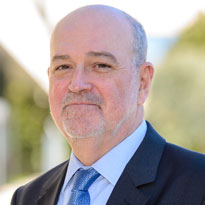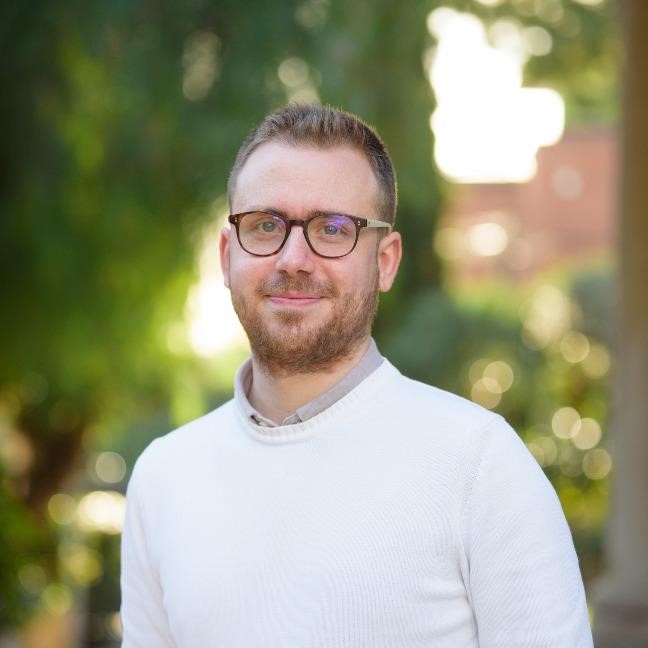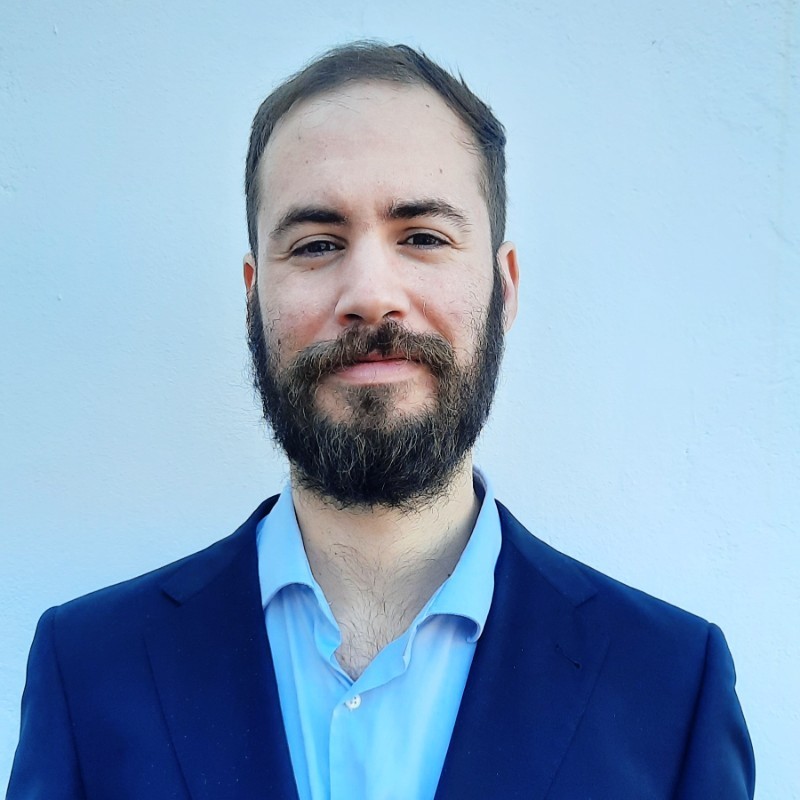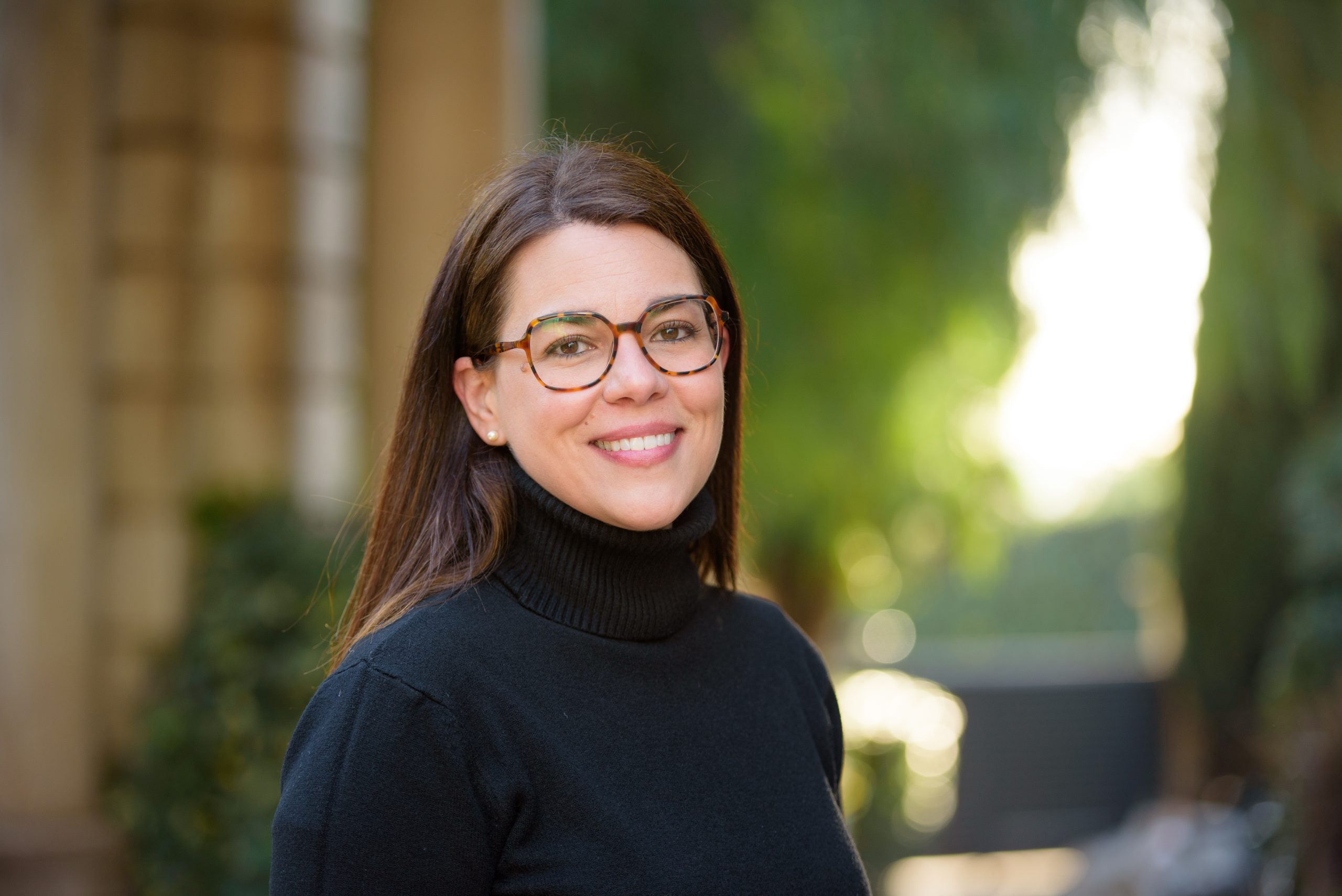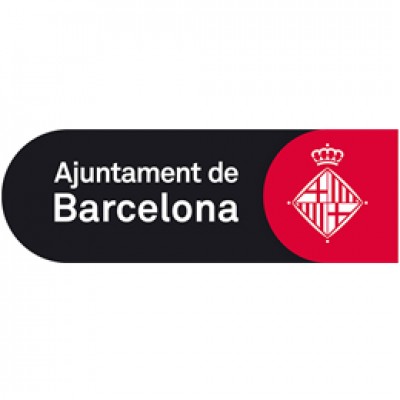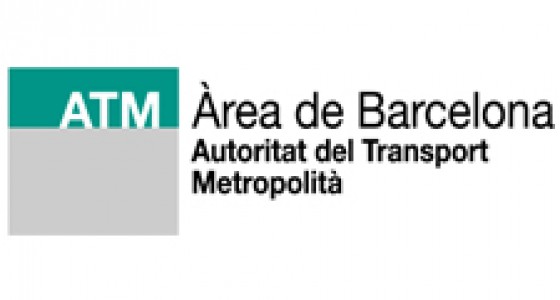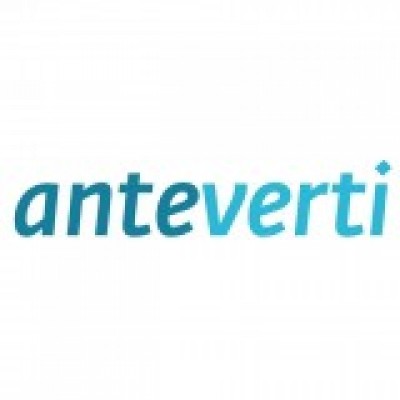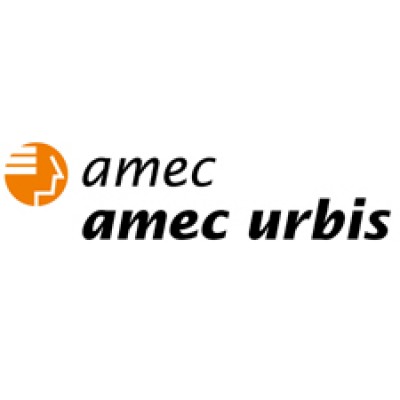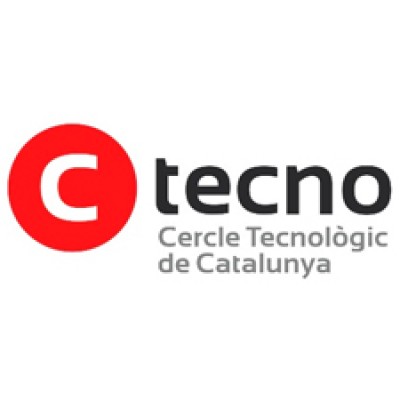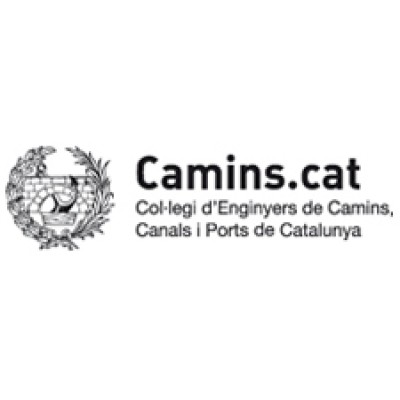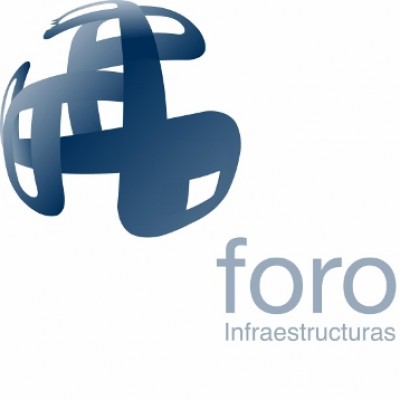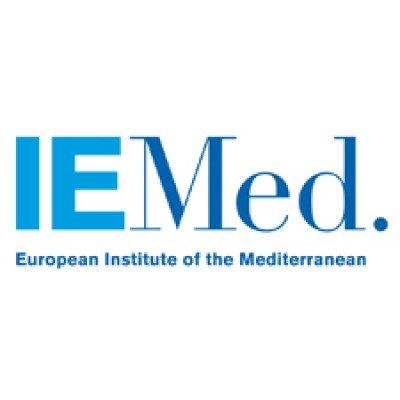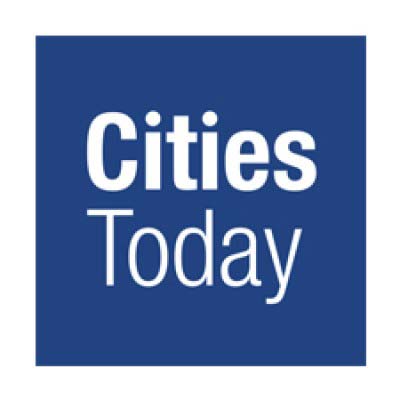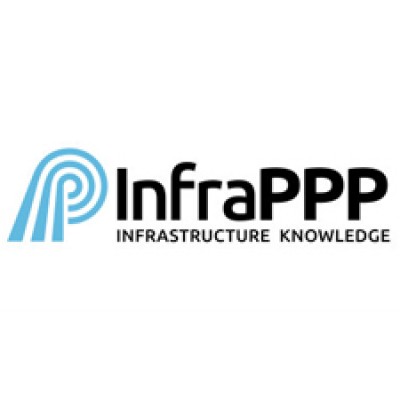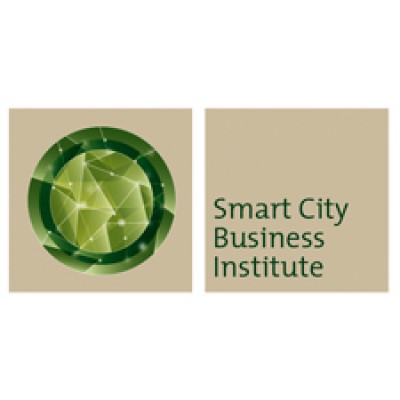PPP for Cities
Specialist Research Center on PPPs in Smart and Sustainable Cities
The Specialist Centre on PPPs in Smart and Sustainable Cities (PPP for Cities) is a research, innovation and advisory center that aims to provide public administrations around the world with support in the organization, management, and development of public-private projects in the field of smart cities.
It is also a platform for collaboration and debate between private companies and public administrations where to explore the dynamics and exchange knowledge on public-private partnerships, create best practice guidelines, develop working standards, design training strategies, and build actionable solutions at the local level.
The PPP for Cities aims to align urban PPP projects to achieve the Sustainable Development Goals (SDG). In the development of its activities in recent years, it has promoted close collaborations with PPP research centers located around the world. The Center was qualified as a Center of Excellence in PPPs by UNECE and became host of its flagship event “International UNECE PPP Forum” on 2021.
The PPP for Cities’ activity is intrinsically related to the Public-Private Sector Research Center (PPSRC-IESE) and the Cities in Motion program at IESE.
- To act as a trusted platform where the public & private sectors can gather, share knowledge and work together to find solutions for critical urban governance issues.
- To advance knowledge and foster impactful research in public-private partnerships for modern and complex urban ecosystems.
- Governance
- Mobility
- Innovation
- Urbanism
- Innovation
Activities & Services.
|
|
Case Studies.
The challenge of mobility in the metropolitan area of Barcelona
This case study analyzes the current state and future challenges of urban mobility in Barcelona, based on discussions from the Barcelona Mobility Dialogues, which brought together over 50 experts from the public and private sectors. The study addresses key mobility issues such as public transport, active mobility (walking and cycling), shared mobility, and the role of public-private partnerships (PPPs) in advancing sustainable solutions. It emphasizes the importance of reducing congestion, improving air quality, and promoting intermodal transportation systems. The report also highlights the potential of digitalization, data sharing, and innovation in governance to improve urban mobility and support the city’s transition to a more sustainable, efficient, and inclusive mobility model aligned with the UN’s Sustainable Development Goals.
Download case study (Spanish version)
MES Barcelona: Driving the energy transition through public-private partnerships
The MES Barcelona (Barcelona Sustainable Energy Mechanism) program, conceived and designed by the 2030 Agenda Office of the Barcelona City Council, exemplifies the determination of public administrations to join the private sector in the search for solutions to these energy challenges. MES Barcelona is a public-private partnership project that uses the tool of co-investment by public and private actors, with the specific objective of facilitating the energy transition and long-term sustainable energy savings by promoting self-consumption of electricity, in households as well as in companies and public facilities, through the use of photovoltaic collectors that harness solar energy.
Download case study (English version)
Download case study (Spanish version)
Total Water Cycle Management in the City of Almería (Spain)
The City of Almería has successfully addressed the challenges of its dry climate by implementing efficient water management measures. These efforts have bolstered the local economy, driven by horticulture and tourism, and made Almería a regional economic hub and population magnet. Aqualia manages various water-related facilities in the city, resulting in improved efficiency and environmental sustainability. Additionally, innovative projects, such as sustainable algae biorefinery and wastewater resource recovery, have been carried out. Private sector involvement in managing public infrastructure has facilitated investment, reduced energy consumption, and transferred risks. These initiatives have made substantial progress towards UN Sustainable Development Goals, improved the region’s economic outlook, and demonstrated the role of smart technologies in overcoming environmental constraints.
Innovating Through PPPs: The Case of Economic Development in Barcelona
This case study shows the recently adopted perspective of the Barcelona City Council regarding the use of PPPs. Through a quantitative and qualitative analysis, the case study shows Barcelona’s innovative focus for economic development through collaboration with multiple stakeholders by means of a relational governance mechanism. In the last years, not only has the city increased its budget for PPPs -from less than €40 million to more than €100 million in 2021- but has also included an innovation requirement for the implementation of projects. The Barcelona case shows that a shared governance in PPP projects allows greater openness to co-creation as well as a capacity to managing high levels of uncertainty.
Towards New Mobility in Barcelona: Lessons Learned from Other Cities
This study aims to analyze some of the recent shared e-scooter deployments that have obtained the best results in the main European capitals, so that other cities can build on the most successful approaches and adapt them to their local realities and needs.
A Descriptive Comparison of the Tram Systems of: Barcelona, Bordeaux, Dublin and Manchester
Infrastructure management of the tram systems has generally been articulated through forms of Public-Private Partnerships that have allowed the knowledge, experience and technology of the private sector to be incorporated into infrastructure management.The implementation of this transport system has been a success in most cases, as will be shown in the examples highlighted in this document.
Sants Food Market Barcelona (Spain)
This case study analyzes the project that renovated the building and indoor facilities of the food market Mercat de Sants located in Barcelona. The objective was to adapt the market to the new services demanded by its users: new and bigger stalls with more product variety, air conditioning, bigger aisles, customer parking, among others. The project was structured as a public-private partnership (PPP) in which a private supermarket chain partially funded the refurbishment of the infrastructure by paying stall opening rights and the Barcelona Municipal Market Insititute (IMMB) fulfilled its strategy to promote neighborhood social life.
Tenerife’s Light Rail. Line 1 (Spain)
This case study analyzes Metrotenerife’s Line 1, designed and constructed as a solution to the growing mobility demands between the cities of Santa Cruz de Tenerife and San Cristóbal de La Laguna. The project was structured by Tenerife’s Island Council under an institutional public-private collaboration where public and private sectors participated through a semiprivate entity (Metropolitano de Tenerife S.A.). Technology and know-how transferring from the private to the public sector through the concession holder company, Metrotenerife, was an innovative element that was added to the contract.
Download case study (Spanish version)
CAP Djinet Seawater Desalination Plant (Algeria)
This study analyzes Algeria’s project to launch a massive program for the construction of large-scale desalination plants, with a daily capacity of 100,000 m3/day to 500,000 m3/day to supply water to the municipalities. To compensate for the lack of local experience, CAP Djinet Seawater Desalination Plants were constructed under a public-private partnership (PPP) scheme, where the private firms brought the necessary know-how to guarantee the correct management of this valuable resource.
La Chira Wastewater Treatment Plant (Lima, Perú)
This case study analyzes La Chira’s Wastewater Treatment Plant project to treat wastewater according to Peru’s existing environmental legislation and theWorld Health Organization’s (WHO) guidelines. Before this Project, wastewater coming from six districts from Limawas being discharged without any previous treatment. The project was structured as a Public-Private Partnership (PPP) and had the objective of improving citizen’s quality of life by taking advantage of private sector’s capacity, competences, resources and experience on the field. Due to its innovation, PTAR La Chira was nominated by Banco Interamericano de Desarrollo (BID) to 360° infrastructure awards as one of the twelve best projects of the region.
Culiacán Wastewater Treatment Plant (Sinaloa, México)
This case study analyzes Culiacán’s Wastewater Treatment Plant objective to put an end to the discharge of untreated sewage into Culiacán River in order to avoid groundwater pollution. The project was structured as a Public-Private Partnership (PPP) and was partially funded by Tacsa consortium and private sector investments. The project addressed environmental issues as well as public health issues due to the spread of water-borne diseases.
El Salitre Wastewater Treatment Plant (Bogotá, Colombia)
This case study analyzes the project to improve and increase the capacity and efficiency of El Salitre’s waste water treatment plant (PTAR) promoted by the Regional Autonomous Corporation (CAR) of Cundinamarca, Bogotá. PTAR El Salitre is the biggest sewage-treatment plan ever carried in Colombia. The refurbished infrastructure has caused major social, environmental and economic impact.
Barcelona Sports Centers Management (Spain)
This case study shows how the Barcelona City Council used a Public-Private Partnership (PPP) framework to successfully refurbish, finance, operate and manage Can Ricart and Colom sports facility centers. Through this project, the City Council fulfilled one of its objectives in the sports area: encouraging healthy habits and promoting physical exercise among its citizens.
New Cairo Wastewater Treatment Plant (Egypt)
The New Cairo Wastewater Treatment Plant study explains the process of a wastewater plant development in Egypt from the initial problem identification to the operation. The document also assesses the impact of the infrastructure on the city and its residents.
Barcelona GIX. IT Network Integration
The case study explains the Barcelona GIX project, which involved the integration (active and passive), expansion, and development of the IT network to provide the city with new infrastructure (5G, the Internet of Things, and connected cars) associated with a smart city using a new business model.
Beach Maintenance in Barcelona’s Metropolitan Area
The document explains how thanks to the integration of different beach maintenance contracts from different municipalities (through the AMB) there were generated economies of scale that reduces cost and improved service to residents.
Comprehensive Maintenance of the Barcelona Ring Roads
The document discusses the contract signed by Àrea Metropolitana de Barcelona for the maintenance of Barcelona’s ring roads as an example of a public-private partnership.
Barcelona Tram Service (Spain)
The aim of this project was to satisfy the need for medium-distance travel, using an environmentally friendly method of transport. The new networks added to the already existing metro and bus networks a new method of transport improving public transport’s capacity and efficiency in the Barcelona metropolitan area.
El Realito Aqueduct (México)
The case study explains how the water supply of the urban area of San Luis de Potosí in México was guaranteed thanks to the construction of the Aqueduct from the dam El Realito. This infrastructure guarantee the water supply in an urban area with problems of water supply coming from the underground aquifers. The financial operation was guaranteed by the use of several trusts by the public authorities.
Download case study (Spanish)
El Carioca Tramway, Rio de Janeiro (Brazil)
The case study explains presents how the Brazilian Public Authorities used several PPP to develop an urban area and build a Tramway that connected this area to the center of the city.
Download case study (Spanish)
The Kuelap Fortress Cable Car (Peru)
The case study explains how the Peruvian Tourism Ministry improved the access to the Kuelap Fortress, one of Peru most known tourist attractions placed in the middle of the Amazonas, by building a Cable Car.
Download case study (Spanish)
Barcelona Telecare program (Spain)
The objective of this program is to improve elderly people’s living standards by providing users with telematic and face-to-face care. With this care, the program tries to reduce the problems caused by any delays in providing help when there is a health emergency.
A
Asset
Any item of economic value, either physical in nature (such as land) or a right to ownership, expressed in cost or some other value, which an individual or entity owns.
B
Bidder
A candidate, consortium, contractor, private sector partner, or tenderer bidding for the project.
Book Value
Net amount at which an asset or liability is carried on the books of account (also referred to as carrying value or amount). It equals the gross nominal amount of any asset or liability minus any allowance or valuation amount.
BOOT
Build, own, operate and transfer
BROWNFIELD
Abandoned, idled, or under-used industrial and commercial facilities where expansion or redevelopment is complicated by real or perceived environmental contaminations
Build/Operate/Transfer
Public-private partnership arrangement involving private construction, private operation for given period of time, and eventual transfer to public ownership.
C
Consortium
Those private sector persons who together intend to deliver a PPP
Contract
The Contract or Project Agreement between the parties for the provision of the contracted service
D
D&C
Design and construct
DBFO (Design, Build, Finance & Operate)
A form of contract in which a consortium takes responsibility for the design, construction, financing and operation (including maintenance) of an asset for a period of years.
DBFM
Design, build, finance and maintain
DBOM (Design, Build, Operate & Maintain)
A form of contract in which a consortium takes responsibility for the design, construction, operation and maintenance of an asset for a period of years, but does not finance its creation.
DCM
Design, construct and maintain
Design-Build
A procurement or project delivery arrangement whereby a single entity (a contractor with subconsultants, or team of contractors and engineers, often with subconsultants) is entrusted with both design and construction of a project. The term encompasses design-build-maintain, design-build-operate, design-build-finance and other contracts that include services in addition to design and construction. Franchise and concession agreements are included in the term if they provide for the franchisee or concessionaire to develop the project which is the subject of the agreement.
Directive
An instruction to national governments from the EC, to create harmonising legislation on a specific subject area within a stated time period; a blue-print for new legislation.
Discount Rate
The rate used to calculate the present value of future cash flows
E
EOI
Expressions of interest for a project
EOI Phase
The phase used to shortlist parties to proceed to the RFP phase who are capable of delivering the project
G
Greenfield
A project which lacks any constraints imposed by prior work
I
Invitation for EOI
An invitation to the market to seek expressions of interest for a project
O
Output Specification
A detailed description of the functions that the new accommodation must be capable of performing. Usually split into building functions and service functions. The Output Specification is intended to state only the outputs required of the services, and not the way in which the PSP will achieve these.
P
Pay-As-You-Go Financing
Describes government financing of capital outlays from current revenues or grants rather than by borrowing.
PFI (Private Finance Initiative)
A procurement route established in 1995 in the UK, and more widely adopted since 1997. It is an important route for much Government spending on assets, as it transfers significant risks to the private sector. PFI requires private sector consortia to raise private finance to fund the project, which must involve investment in assets, and the long-term delivery of services to the public sector. In BSF, PFI is one of several possible procurement routes being funded.
PPP (Public Private Partnerships)
The relationship formed between the private sector and public bodies often with the aim of introducing private sector resources and/or expertise in order to help provide and deliver public-sector assets and services. The concept of PPP embraces many forms of partnership including PFI.
Present Value (PV)
The value of future cash flows discounted to the present at certain interest rate (such as the entity’s cost of capital or funds), assuming compounded interest. The GAO definition of present values is as follows: The worth of a future stream of returns or costs in terms of money paid immediately (or at some designated date). A dollar available at some date in the future is worth less than a dollar available today because the latter could be invested and earn interest in the interim. In calculating present value, prevailing interest rates provide the basis for converting future amounts into their “money now” equivalents. Under credit reform, the subsidy cost of direct loans and loan guarantees are to be computed on a present value basis and included as budget outlays at the time the direct or guaranteed loans are disbursed.
Project Revenues
All rates, rents, fees, assessments, charges, and other receipts derived by a project sponsor from a project.
PSC
The Public Sector Comparator for a project, which is defined in the Guidelines as the hypothetical, risk-adjusted whole-of-life cost of a public sector project if delivered by government
R
RFP
A request for proposal issued by government for a project
RFP Phase
The phase involving the release of the RFP to shortlisted bidders for detailed, fully-costed and binding RFP responses, followed by evaluation and selection of the preferred bidder
Risk Allocation
The allocation of responsibility for dealing with the consequences of each risk to one of the parties to the contract; or alternatively, agreeing to deal with a particular risk through a specified mechanism which may involve sharing that risk
S
SPV (Special Purpose Vehicle)
In establishing a project consortium, the sponsor or sponsors typically establish the private party in the form of a special purpose vehicle (SPV) which contracts with government. The SPV is an entity created to act as the legal manifestation of a project consortium
T
Technical Dialogue
A formal process of dialogue to assist in Project Scoping, undertaken by the authority and potential candidates in the period after issuing the PIN but before issuing the Contract Notice.
Tender Process
Includes each of the following phases:
▪ EOI phase;
▪ RFP phase; and
▪ Negotiation and completion phase
Traditional Procurement
The delivery of the infrastructure and associated services by government using its normal procurement processes
Transferred Risk
The value of those risks (from government’s perspective) that are likely to be allocated to the private party under a PPP project
W
Whole-of-life
The integration of up-front design and construction with ongoing maintenance and refurbishment elements over the life of the asset under the PPP arrangement
Financing Smart Solutions in Cities. Report on the conclusions arrived at the workshops held to discuss about financing smart solutions.
Throughout academic year 2018-2019, IESE Business School, smart cities projects designers and financial agents celebrated various workshops with the objective of analyzing the most adequate funding systems to enable the application of smart solutions in urban areas, particularly in building refurbishment, sensorisation and sustainable mobility. This Report documents all conclusions drawn at the aforementioned workshops.
Download occasional paper (Spanish Version)
Download occasional paper (English Version)
Modelling the logistics sector in Cataluña. Logistics mobility Map of Cataluña.
This document has been elaborated with the International Economic Forum in Logistics’ (IEFL) collaboration. By recreating the logistics sector model established in Cataluña, we have been able to create a database that can be explored in detail with regards to each municipality and each stretch of road, in order to identify possible problem areas and put into context the existing data through its comparison.
Download occasional paper (Spanish Version)
1st Conference on Public Management. Public Private Partnerships debate
The Conference on Public Management, co-organized jointly with the Barcelona Provincial Council and the Specialist Center on PPP in Smart and Sustainable Cities (PPP for Cities), aims at creating a space for reflection and knowledge on good practices in local management within the framework of public-private partnerships. The meeting will represent a channel for the local government to have at its disposal the existing knowledge on excellence in public management and at the same time to serve as a meeting point for professionals in the sector that allows them to share experiences, learn from experts and discuss proposals, in order to generate opportunities to implement improvements in the management of their public services.
This Report is a transcript of the “1st Conference on Public Management. Public-private partnership debate” that took place on October 5, 2016. The elements of debate of this first Conference pivoted around assessing the capacity and need for a concession by the Public Administration or the keys to its renegotiation. During the Conference, a roundtable discussion was also held with experts on PPPs, where real cases of concessions and renegotiations were exposed, and the participants themselves were able to participate in the debate that was opened at the end of each intervention. The activity was addressed to employees of the public administrations, both political representatives and municipal managers.
The Report has gathered the contributions of all the speakers during the conference, as well as the participants in the debate. It should to be read as a transcript, taking into account that the participants used colloquial expressions common to debates and oral presentations
Download report (Spanish & Catalan)
Shaping the Cities of Tomorrow: Renewable Energies and Sustainable Urban Ecosystems
A total of 29 case studies are analyzed in Shaping the Cities of Tomorrow: Renewable Energies and Sustainable Urban Ecosystems, a report prepared by IESE’s Specialist Center on Public-Private Partnerships (PPP) in Smart and Sustainable Cities. These case studies help illustrate good practices in the consumption and production of energy for more sustainable cities.
Data collected from these cases allow the report’s authors to share insights that are applicable elsewhere, including a series of recommendations for policy officers. With over half of the world’s population already living in cities, and more to follow, smart solutions can help urban ecosystems improve the quality of life for inhabitants.
Download report (English)
A Vision for Barcelona’s Future: City Science Illuminating Urban and Economic Development
This project analyzes Barcelona’s current position in comparison to cities such as Amsterdam, Boston, Munich, and Stockholm in various strategic areas and offers recommendations that could help the city establish itself as a global benchmark.
Download report (English)
PPP Guideline for Regional and Local Governments in Latin America
The Specialist Center on PPP in Smart & Sustainable Cities has prepared this PPP Guideline for CAF- Latin American Development Bank. The purpose of this first PPP guideline is to improve the capacities of local & regional Governments in Latin American Region. The Guideline introduces the main topics related to PPP and helps to determine when, where and how to use these kind of contracts by public officers. The Guideline has an especial focus on PPP in urban areas, as in Latin American region 80% of the population is concentrated in urban areas. Finally, an innovation of this Guideline is that it presents the People-First PPP concept, used by the United Nation Economic Commission for Europe to determine how a PPP can help societies to reach the United Nations Sustainable Development Goals.
Download Guideline (Spanish)
Download Guideline (English)
Download Guideline (Portuguese)
World Economic Forum. The model policy for Innovation-Friendly Procurement.
This publishing outlines a model policy designed to help public sector organizations use procurement as a tool to promote innovation. It provides practical guidelines for making procurement processes more flexible and focused on outcomes, enabling governments to drive economic, social, and environmental benefits through innovative solutions. The policy offers a step-by-step approach to overcoming common barriers in public procurement, such as risk aversion and outdated methods, and supports the adoption of new technologies. It is part of the G20 Global Smart Cities Alliance’s efforts to promote urban transformation through technology.
Download (English)
ThoughtLab. From future vision to urban reality.
Our latest research reveals that a select group of cities are leading the way in turning their sustainable, resilient, and inclusive visions into reality. ThoughtLab’s global study of 250 cities reveals that these future-ready urban centers are outpacing others in tackling complex challenges and transforming key areas like infrastructure, transportation, sustainability, and public safety. This new report serves as a vital guide for city leaders, offering strategic insights to help them turn their long-term plans into impactful actions.
Go to de website (English)
Conference & Events.
November 10th, 2023 / Barcelona, Spain
VII Jornada de Gestió Local: El repte de les comunitats energètiques com a motor de la transició verda
• El paper dels municipis en la formació i promoció de les comunitats energètiques: Francesc de Sàrraga, Cap de l’oficina tècnica pel canvi climatic i sostenibilitat, Diputació de Barcelona (slides)
• El concepte de comunitat energètica i les seves potencialitats: Montserrat Mata Dumenjó, Associate Professor UPC (slides)
Taula rodona “Experiències internacionals de comunitats energètiques d’èxit”
- Mika Hasselbring, UIV Urban Innovation Vienna GmbH
- Nuri Palmada, membre de l’equip de Nous Projectes de Som Energia i vicepresidenta de RESCoop (slides)
- Flavio Rosa, PostDoc- Research Fellow in Environmental Building Physics, Faculty of Architecture, Sapienza University of Rome (slides)
Taula rodona “Col·laboracions público-privades i comunitats energètiques a la província de Barcelona”
- Àngel Campabadal Solé, President, Cooperativa Rocaguinarda (slides)
- Joan Herrera, Director Medi Ambient i Energia, Ajuntament el Prat de Llobregat (slides)
- Jordi Martin, Comunitat energètica Caldes de Montbui, Regidor Ajuntament Caldes de Montbui (slides)
- Ramon Roig, Membre fundador, Cooperativa Balenyà Sostenible (slides)
March 24th, 2023 / Barcelona, Spain
A vision for Barcelona’s future: City Science, urban design and economic development to transform Barcelona (video)
June 9th, 2022 / Barcelona, Spain
VI Jornada de Gestió Local: “Reptes dels municipis enfront del canvi climàtic. La infraestructura verda i les solucions basades en la natura per a la millora de la resiliència urbana” (informe)
• Adaptació dels municipis enfront del canvi climàtic: el paper de la infraestructura verda urbana com a element vertebrador de la resiliencia, Carles Castell, Diputació de Barcelona (slides) (Video)
• Què són les Solucions Basades en la Natura? Context, tipologies, i beneficis. Johannes Langemeyer, Universitat Autònoma de Barcelona (slides) (Video)
Taula rodona: “Exemples internacionals d’utilització de Solucions Basades en la Natura” (vídeo)
• Exemples internacionals d’utilització de Solucions Basades en la Natura: Antonio Prieto González, Concello A Coruña, Projecte Connecting Nature (slides)
• Exemples internacionals d’utilització de Solucions Basades en la Natura: Gustaf Landahl, Ajuntament d’Estocolm (slides)
• Exemples internacionals d’utilització de Solucions Basades en la Natura: Siobhan Mcquaid, Connecting Nature H2020 Innovation Action, Trinity College de Dublin (slides)
Taula rodona: “Col·laboracions Público-Privades i reptes de governança i d’implementació en l’àmbit local i nacional” (vídeo)
• Col·laboracions Público-Privades i reptes de governança i d’implementació en l’àmbit local i nacional: Sílvia Fernández Campa, Fundación Biodiversitat (slides)
• Col·laboracions Público-Privades i reptes de governança i d’implementació en l’àmbit local i nacional: Enric Serra del Castillo, Ciutat de Viladecans (slides)
• Col·laboracions Público-Privades i reptes de governança i d’implementació en l’àmbit local i nacional: Martí Franch Batllori, EBM
Tanca VI Jornada de Gestió Local. (video)
May 4th to May 6th, 2022 / Barcelona, Spain
6th UNECE International Public-Private Partnerships Forum
November 30th, 2021 / Barcelona, Spain
V Jornada de Gestió Local: Reptes i nous models de gestió de residus al món local (informe)
• Introducció a la conferencia “Reptes i nous models de gestió de residus al món local (video)
• Recollida selectiva de residus: on som i cap a on anem. Conchita Vicaria, Diputació de Barcelona (video)
• Principals reptes a afrontar en la gestió del residus abans del 2025. Francesc Giró i Fontanals, Director de Planificació Estratègica, Agència de Residus de Catalunya (video)
• La gestió de residus des de la perspectiva local i mancomunada: Lluís Fatas, Cap de servei de neteja i Mediambient, Ajuntament de L’Hospitalet de Llobregat (video)
• La gestió de residus des de la perspectiva local i mancomunada: Vanessa Abad, Directora de l’Àrea de Tractament del Consorci per a la Gestió dels Residus del Vallès Oriental (video)
• Innovació en la gestió des de la perspectiva de l’empresa: Climent Vilatersana, Director, MOBA (video)
• Innovació en la gestió des de la perspectiva de l’empresa: Ignasi Puig Ventosa, Ent (video)
• Innovació en la gestió des de la perspectiva de l’empresa: Frederic Puig, SPORA – IDWaste (video)
November 4th, 2020 / Barcelona, Spain
IV Jornada de Gestión Local: Transición energética: retos en el ámbito municipal (informe)
– Progamas europeos de financiación de proyectos
Moderador: Antoni Montseny, Director de Relaciones Internacionales de la Diputación de Barcelona
– Sra. Mar Rubio-Varas, Profesora Universidad Pública de Navarra (UPN) y autora del trabajo
“Next Generation EU” y su posible impacto en Navarra
– Sr. Manel Sanmartí, Corporate Development and Technology Transfer Director at IREC
– Casos Prácticos. Proyectos energéticos en el ámbito local
Moderador: Sr. Francesc Ribera, gerent del Cluster de l’Energia Eficient de Catalunya (CEEC)
– Sr. Aniol Esquerra, CEO de Ecoserveis
– Sr. Rafael Benjumea, Director de la Comercializadora Estabanell Energia
– Casos Prácticos. Participación de actores locales en la producción y distribución de energía renovable.
Moderador: Prof. Joan Enric Ricart, IESE Business School – IESE PPP for Cities
– Sr. Pere Gutiérrez y Sr. Jordi Mazón, Ajuntament de Viladecans. Project VilaWatt.
– Sr. Albert Camps, Ajuntament de Granollers. Ecocongost.
March 13th, 2020 / Brussels, Belgium
III Conference on Competition and Regulation in the Telecommunications Market
January 20th, 2020 / Barcelona, Spain
Cicle Estratègic “Col·laboració Publicoprivada en un entorn metropolità eficient i sostenible” held in Palau Macaya, from “la Caixa”
December 18, 2019 / Barcelona, Spain
Press release: Barcelona Global Challenge. El reto de sumar para multiplicar: la colaboración público-privada como eje de transformación de Barcelona
“El ‘Modelo Barcelona’ de colaboración público-privada: del éxito a la crisis”
November 20, 2019 / Barcelona, Spain
Smart City World Congress: “Who pays the smart bill? How to finance smart solutions”
Presentation of the report: La financiación de soluciones smart en las ciudades. Smart financing. Informe de conclusiones de los talleres sobre financiación de soluciones de smart cities.
November 19, 2019 / Barcelona, Spain
II International Conference in Smart Logistics.
Urban toll & logistics last mile. Smart City World Congress
Presentation of the document: Modelización del sector logístico en Cataluña. Mapa de movilidad logística en Cataluña (Spanish version)
October 28, 2019 / Barcelona, Spain
Press release: Barcelona Global Challenge. El reto de sumar para multiplicar: la colaboración público-privada como eje de transformación de Barcelona
“El porqué y el cómo de la colaboración público-privada en Barcelona”
October 18, 2019 / New York, USA
PPP Workshop
“Reaching Smart Cities through Partnerships”
September 18, 2019 / Buenos Aires, Argentina
PPP Workshop
“Mecanismos de Participación Público-Privada en Argentina: herramientas para Gobiernos Provinciales en el desarrollo de su infraestructura”.
November 13, 2018 / Barcelona, Spain
International Conference in Smart Logistics
November 7, 2018 / Barcelona, Spain
III Conference on Public Management
“Smart Solutions for cities needs”
October 24, 2018 / Madrid, Spain
II Conferencia sobre Regulación y Competencia en el Mercado de las Telecomunicaciones
January 22, 2018 / Barcelona, Spain
II Conference on Public Management
The future of industrial estates
November 14, 2017 / Barcelona, Spain
III International Conference PPP for Cities
“Reaching the Sustainable Development Goals in Latin American cities thanks to Public Private Partnerships”
March, 21 & 29 and May 3, 2017 / Barcelona, Spain
Workshop: The future of the high streets: from local commerce to integral urban economic development
November 17, 2016 / Barcelona, Spain
II International Conference PPP for Cities
“Governance among partners in Public Private Partnerships”
October 5, 2016 / Barcelona, Spain
I Conference on Public Management
Discussion on PPPs
June 21-22, 2016 / Qingdao, China
First Qingdao China PPP Forum.
March 30 – April 1, 2016 / Geneva, Switzerland
International UNECE PPP Forum for the Sustainable Development Goals (SDGs)
February, 2016 / Kiev, Ukraine
Course on Public – Private Partnership for Sustainable Development
November 18, 2015 / Barcelona, Spain
I Global Meeting UNECE International PPP Centre of Excellence.
November 17, 2015 / Barcelona, Spain
I International Conference PPP for Cities.
“Fostering sustainability and innovation in cities through Public Private Partnerships”
April 29, 2015 / Madrid
Presentation PPP for Cities
April 22, 2015 / Barcelona
Presentation PPP for Cities
March 10, 2015 / Barcelona, Spain
Do Different People Need Different Governments?
Presenter: Giacomo Ponzetto (CREI, UPF, and Barcelona GSE)
February 20, 2015 / Paris, France
Optimal Spatial Taxation: Are Big Cities Too Small?
Presenter: Jan Eeckhout (University College London and Barcelona GSE – UPF)


Xavier Fageta
Research Fellow


Francesc Trillas
Research Fellow
Executive Team.
Executive Team.
Sponsors
Membership
The center aims to be a meeting point of reflection and partnership between the public and private sectors. To this end, it has established different levels of participation in the center’s activities:
- Institutional promoters, reserved for public entities and international organizations
- Sustaining member (public and private sectors)
- Sponsor (public and private sectors)
- General Member (public and private sectors)
Benefits for members depending on their degree of affiliation:
- Forming part of a worldwide benchmark center in public-private partnerships in cities
- Access to the reports, practical guides, studies and other documents generated by the center
- Placement of the member company’s logo on the center’s website and most important communications
- Receiving a periodic newsletter with the latest international news
- Access to conferences and other events, with the possibility of having first dibs at sponsorships
- Access to exclusive events for members
- Access to the network of United Nations’ Specialist Centres on PPPs
- Forming part of the center’s group of international experts with the possibility of joining international advisory missions, participating in talks at conferences, etc.
- Access to the database of practical case studies
- Leading and participating in working groups to draw up standards
- Publishing articles in the center’s communications
- Receiving specialized training from center experts
- Including your own case studies in the center’s database
